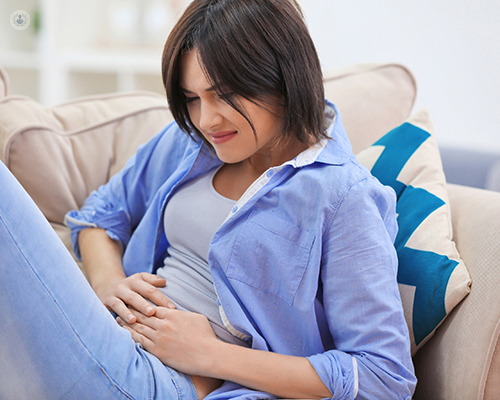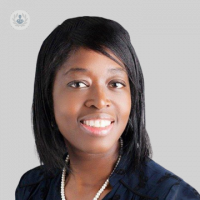How can I deal with my heavy periods?
Written by:Heavy periods can make day to day life difficult, with many women having to change their daily life when menstruating. Often heavy periods can be accompanied by pain too. Dr Karen Joash, a leading gynaecologist, explains that whilst heavy periods can be a burden for many women, there are treatment options available that can be very effective.

What defines a heavy period?
It is very difficult to define what a heavy period is because it varies from woman to woman, but usually, periods are described as being heavy if you are changing your sanitary towel/tampon, around every hour, or if it is affecting you physically, such as when you have a period and you bleed through your clothes; or it is affecting your daily life. Examples of this could be that walking up the stairs makes you feel unusually short of breath or at the end of a working day you are so exhausted that you have to lie down.
If heavy periods are accompanied by other symptoms, such as bleeding after sex, bleeding between periods, pain, or if you are over age 45, it is important to see a doctor sooner than later. This is because there could be an underlying cause that needs to be treated.
Read more: why are my periods so heavy?
Are there any treatments available for heavy periods?
There are several treatment options available to you.
- Intrauterine system (IUS):
The most effective treatment is an intrauterine system, such as Mirena®. This is a T-shaped device that is inserted into the uterus and releases a hormone over time. This results in your periods to become less frequent or lighter over time. Such a device lasts for five years.
- Medicine options:
If you or your doctor feels that you would like to consider a medical option, there are several medicines that may help. There are medicines that do not contain hormones, such as mefenamic acid and tranexamic acid that are sometimes used, or there are medicines that do contain hormones that are sometimes quite helpful. These are medicines that can contain a combination of oestrogen and progesterone (e.g. the combined pill), or just a single hormone, such as progestin. These can be given orally or in an injection form. These both aim to make your periods lighter and easier to manage.
- Surgical options:
Medical options are usually very effective at managing heavy periods, but occasionally surgical options need to be considered, of which there are several options available. The first is endometrial ablation. This is where the lining of the uterus is thinned and it can be done in a variety of ways. Other options include uterine artery embolisation; where the blood flow to the fibroid is disrupted. Less commonly, surgical treatments such as a myomectomy, where a fibroid or several fibroids are removed surgically, need to be employed. Finally, and rarely as a last resort, the uterus itself needs to be removed via a hysterectomy.
If you suffer from heavy periods, make an appointment with an expert to discuss your treatment options.


